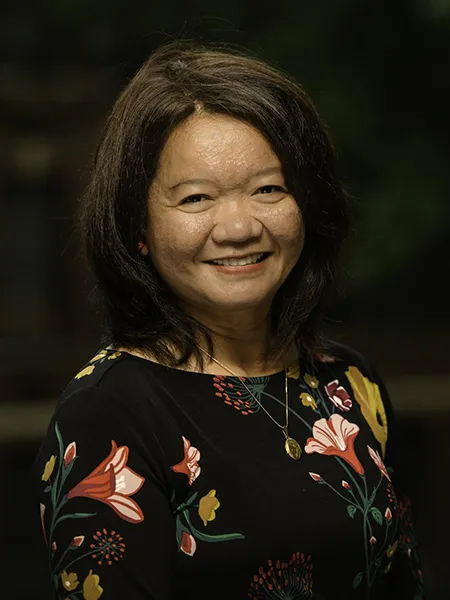
Nurhaya Muchtar
Like many people, Nurhaya Muchtar was on a career path that ended up leading her elsewhere, and she found a career she never expected. Learn more about her in this week’s Meet Our Faculty feature.
What is it about the communications media field that initially drew you in—and ultimately keeps you interested?
To begin with, I didn’t plan to work in the field of communications media. My undergraduate degree was in English education. The initial motivation to join this field was due to political unrest in Indonesia prompting nationwide student protests that led to the resignation of the Indonesian president. At the same time, there was a need for independent global media reporting, especially for an international audience. Through personal networking, I was trained and learned journalism by assisting international correspondents from various media institutions, such as NPR, the BBC, Swedish TV, the Canadian Broadcasting Corporation, and so on. Assisting journalists for this media helped me understand the importance of journalism work, especially in providing a space for people to voice their concerns. The broadcasting aspects showed me the creative side of media storytelling through words, pictures, and video, which kept me interested in this field.
Why do you enjoy teaching in this discipline?
Journalism is storytelling. It is not only about politics but also about our everyday life. Journalism and communications media work hand in hand. It is a chance to share different knowledge and understanding, from sociology, criminology, history, politics, and others to the creative side of technology using cameras, cell phones, editing software, and other types of technology. I enjoy teaching this in discipline, because I can help students understand the connection between journalism and communications media to other knowledge that they learned from other classes. News feature production skills, for example, can be used for different purposes, not only in journalism and communication fields such as public relations and marketing, but also when they work for other sectors, such as health, sports, and hospitality.
What advice would you give students about how to succeed in college?
Learning can be challenging, but if you can find one thing that is fun about your subject, whether it is through class materials or friends and professors, you’ll be motivated to succeed.